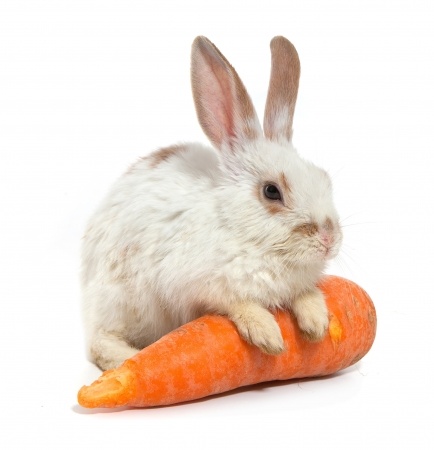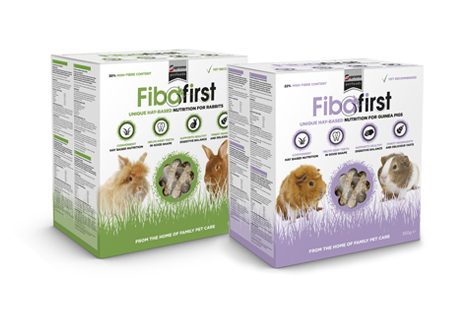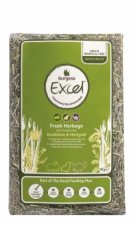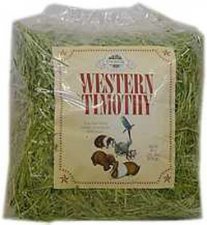Correct Feeding

Correct feeding is a top priority for your rabbit to be healthy.
Healthy rabbits eat lots of hay!
Rabbits are fibrevores. They have adapted over thousands of years to survive on a diet consisting of grass, and leafy herbage. Chewing tough hay, grasses and weeds wears down the teeth; to compensate for this rabbits teeth grow several millimetres per week.
Ideally 80% of the diet should be made up of abrasive foods such as grasses (hay). These grasses contain silicates which help wear down the teeth. Secondly the fibre stimulates gut motility, breakdown of cellulose and the breakdown of fatty acids in the bowel. Timothy hay tends to be the most suitable for everyday feeding.
Rabbits that eat less hay and more pellets are at risk of serious dental diseases and
Fibafirst is a new diet developed to address many of the problems caused by the current commercial rabbit foods.

Feed a small amount of freshly pulled grass, garden weeds or tree leaves daily. A small piece of carrot can be used as a chew toy.
Avoid feeding anything that people eat! If we can eat it then it hasn't got enough fibre in it! Rabbits are not fruit eaters and although they love sweet things they are not good for them. A tiny taste won't do any harm, but be careful! Do not give toast, crisps, biscuits or chocolate! Don't be tempted to buy rabbit treats and goodies from superstores, most of them are far too sweet and will cause serious bowel disorders.
Avoiding Dietary Problems
Without sufficient fibre in their diet rabbits are prone to an irritable bowl syndrome with intermittent constipation, diarrhoea and colic. Rabbits on a low fibre diet tend to over groom themselves, consuming large amounts of fur as a fibre source which, can lead to fur balls developing and potentially gut impaction.
Poisonous Plants
There are several plants that are poisonous to rabbits. Never feed them to your pets and make sure there's no access to them in the house or garden. This isn't an exhaustive list, but some plants and flowers that are poisonous to rabbits are: bindweed, bryony, buttercup, bluebell, crocus, daffodil, dock, dog mercury, foxglove, hyacinth, laburnum, poppy, ragwort, sorrel, toadflax, tulip and yew.
While some may not be fatal they can cause stomach pain and digestive problems.
Fresh water daily
Change water daily. Ideally use a gravity water bottle which delivers a small amount of water when the rabbit licks at the spout. Water dishes can become easily contaminated, but if you do choose to use one select a heavy dish which can't be easily knocked over.
Disinfect the water bottle weekly in a sterilising solution suitable for babies. Follow the instructions carefully and rinse thoroughly before use.
A water bottle cover is advised to help limit algae growth in summer and help prevent the water freezing in the winter.
.jpg) 30 years ago..... (David Higginson MRCVS remembers)
30 years ago..... (David Higginson MRCVS remembers)
We knew very little about feeding rabbits for good health and a long life. Books on rabbit health were aimed at the rabbit breeder; the back pages often had rabbit recipes such as rabbit pie /curry etc. During the Second World War rabbits were used as a food supply and methods of feeding were aimed at rapid growth (and a short life!). It wasn't until the 1980's that we began to take a rabbit's diet seriously, and most of our current advice has evolved in just the last 15 years. Rabbits now live much longer - hence our more recent concern about neutering females because of the risk of uterine cancer above 5 years of age. In the past they never used to live long enough to get cancer!



